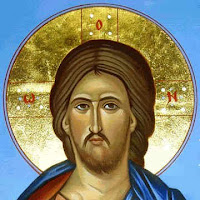A.S Haley: A Legal Fable-the Dennis Canon
Wednesday, January 7, 2009
The Dennis Canon supposedly establishes a permanent trust on "property held by or for the benefit of any [Episcopal] Parish, Mission or Congregation" in favor of the diocese in which the property is located, and in favor of "this Church". The California Supreme Court just held that the Canon established such a trust on the property of St. James Church in Newport Beach, even though there is no document in which St. James agreed to establish such a trust, as State law has consistently required since 1850, and as the Statute of Frauds has required since 1677.
Some commentators who are sympathetic to the national Church believe in their Episcopal hearts that the result simply reflects "an already existing understanding of the fiduciary and trustee relationship of parishes with their property; and [the fact that] by their admission into the church they have voluntarily accepted its law as governing and limiting their actions." Indeed it does; indeed it does reflect "an already existing . . . relationship". Such a relationship has, however, two sides. If there is an understood promise always to devote the property to the use of the larger church, isn't there a corresponding promise to keep the larger church faithful to "the faith once delivered to the saints"? It is again one of those ironies of the law that the former promise should (currently, at least) be enforceable in the courts, but not the other---because it would "entangle" the courts in religious doctrine. And yet the one is the consideration for the other.
So there is an enforceable trust on the property. Just what are its terms, and where do we go to look for them? So many people seem willing to assert the existence of a trust---including, apparently, the California Supreme Court---but there are precious few who are willing to say just what the Dennis Canon means. the rest


1 Comments:
I expect that this is a reflection of our society's movement towards "rights" of citizens vs. their "responsibilities" within civil society. TEC and the lawyers (on both sides) are all about rights. It will be hard to get anyone to enforce "responsibilities" as we have freedom of choice. If TEC chooses through Synod or GCs to change into Buddhists, then they have done so "legally" and will continue to be engaged in mission and ministry as they define it. (redefine it)
my two cents.
from Canada
Post a Comment
<< Home